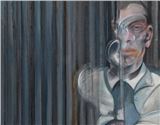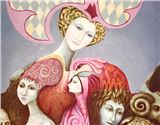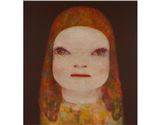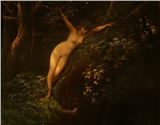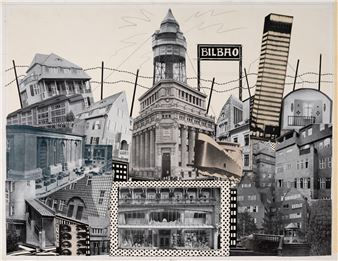Three Formal Experiences
The exhibition Three Formal Experiences is a reflection on contemporary sculpture based on the work of three talented artists: Núria Fuster, Clara Montoya and Sandra Val. Although each has their own distinctive plastic language, the works presented here serve as three models of research in which the formalist tradition of sculpture is deployed. Despite its experimental nature, this formalism does not however eschew the expression of certain contents.
Taking as its pretext the book Nature, History, God (Naturaleza, Historia, Dios) by the philosopher from San Sebastian Xavier Zubiri, published in 1944, the exhibition seeks to imagine a number of these possible contents. It does not, however, set out to illustrate philosophical concepts, but simply to present them schematically through the formal experiences of these three artists. Their sculptures and installations exemplify these three core concepts of Western metaphysics, in an intellectual exercise that will require the hermeneutics of the works and the understanding on the part of the viewer.
Three Formal Experiences opens with a sculptural installation by Sandra Val, in which she evokes the idea of a garden and, at the same time, the genesis of the concept of nature. The itinerary continues with a spectacular triple installation by Clara Montoya, in which she deliberately sets out to suggest the idea of the responsibility we owe to nature and history. This responsibility for our own actions brings us into contact with, secondly, a specific idea of history. The exhibition closes with sculptures by Núria Fuster, who invites us to open our senses to a certain animated life and to a certain awareness of objects. This conscious subjectivity of matter is juxtaposed here with the philosophical and romantic tradition and with the pantheistic philosophy of Spinoza, who pointed out the absolute identity between Deus sive Natura sive Substantia. It is this identity that we are asked to consider here, in the sense suggested by a reading of the book Nature, History, God, published by Xavier Zubiri forty years ago.
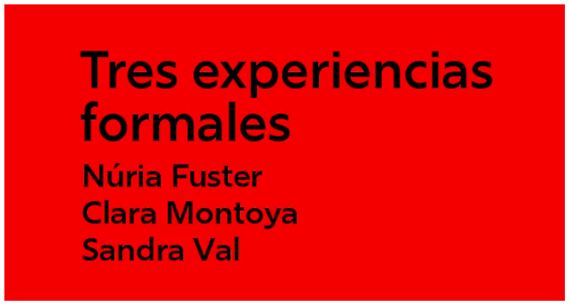
Recommended for you
The exhibition Three Formal Experiences is a reflection on contemporary sculpture based on the work of three talented artists: Núria Fuster, Clara Montoya and Sandra Val. Although each has their own distinctive plastic language, the works presented here serve as three models of research in which the formalist tradition of sculpture is deployed. Despite its experimental nature, this formalism does not however eschew the expression of certain contents.
Taking as its pretext the book Nature, History, God (Naturaleza, Historia, Dios) by the philosopher from San Sebastian Xavier Zubiri, published in 1944, the exhibition seeks to imagine a number of these possible contents. It does not, however, set out to illustrate philosophical concepts, but simply to present them schematically through the formal experiences of these three artists. Their sculptures and installations exemplify these three core concepts of Western metaphysics, in an intellectual exercise that will require the hermeneutics of the works and the understanding on the part of the viewer.
Three Formal Experiences opens with a sculptural installation by Sandra Val, in which she evokes the idea of a garden and, at the same time, the genesis of the concept of nature. The itinerary continues with a spectacular triple installation by Clara Montoya, in which she deliberately sets out to suggest the idea of the responsibility we owe to nature and history. This responsibility for our own actions brings us into contact with, secondly, a specific idea of history. The exhibition closes with sculptures by Núria Fuster, who invites us to open our senses to a certain animated life and to a certain awareness of objects. This conscious subjectivity of matter is juxtaposed here with the philosophical and romantic tradition and with the pantheistic philosophy of Spinoza, who pointed out the absolute identity between Deus sive Natura sive Substantia. It is this identity that we are asked to consider here, in the sense suggested by a reading of the book Nature, History, God, published by Xavier Zubiri forty years ago.

 ARTISTS
ARTISTS
